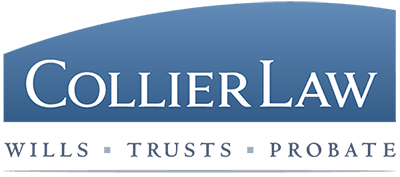
Find A Trusted Estate Lawyer Today
Collier Law near Salem is experienced in all aspects of estate planning. Our practice focuses exclusively on estate planning, trust administration, and probate.
A basic estate plan is a set of documents that includes a will, possibly a revocable living trust, and ancillary documents such as a Durable Power of Attorney, Advance Directive, HIPAA Release, and more. These legal tools help individuals and couples plan for and deal with illness, incapacity, and death. Moreover, these legal tools play an important role in reducing estate taxes, providing for the smooth transition of a business, and supporting minor children.
Personal trust
A living trust, also referred to as a revocable living trust, is a flexible and common estate planning tool. A revocable living trust is a written agreement that appoints a trustee to manage the property owned by the trust. Trusts generally avoid the probate court altogether, which makes them a popular tool in Oregon.
A newly created trust does not yet own any assets or property, so it must be “funded” by the individuals who created it. The individuals who create a revocable living trust are referred to as the grantors but may also be called trustors or trust makers. Funding a trust is the process in which the grantors will change the ownership of their assets to be owned by the trust. The grantors will continue to manage their assets the same as they did before the trust was created. However, they will now be doing so as the current trustees of the trust. All assets stay under your control and remain held under your social security number.
During your lifetime, you will be both the grantor and trustee of your trust. If you need assistance in managing your financial affairs, the trust will describe who may step in as a successor trustee and under what circumstances that individual will assist you.
Upon your death, the trust will become irrevocable. Once the trust is irrevocable, it generally cannot be modified or canceled. At that point, your successor trustee will step in and manage the assets held in the trust according to your wishes and the provisions of the trust. Those provisions also describe the beneficiaries who will receive or inherit assets and property from your trust upon your death.
Trustees Management
How can I make sure my possessions end up in the right hands when I’m gone?
A revocable living trust will provide instructions for the distribution of your property upon your death. The successor trustee you appoint in the trust will manage the trust property after your death in a fiduciary capacity. That means that the trustee owes certain duties to the beneficiaries, including the duty of loyalty. If the trustee violates these duties, they can be held liable for their actions.
To learn more about how your trust will be settled on your passing, click here.
Asset protection

Some types of trusts can provide asset protection for you directly. The more common approach is using trusts to provide asset protection for your loved ones. This can include protection for your child’s inheritance in the event they are faced with a divorcing spouse, along with protection from lawsuits, judgments, foreclosures, bankruptcy, and other threats to their inheritance.
You can also build in protection for your beneficiaries who could be faced with incarceration, drug addiction, or financial exploitation. If a beneficiary is on need-based government benefits, a special type of trust can be established to work in alignment with those benefits and ensure the beneficiary is not disqualified for receiving an inheritance.
Consider a Trust
For an overview of advantages and disadvantages to Revocable Living Trusts, click here.
Can a revocable living trust help avoid probate?
Trusts are a very common and efficient estate planning tool. Many people are not interested in having their estate settled by the probate courts under the direction of a will. A well-prepared and maintained trust will bypass the delay and expense of probate. It can also reduce taxes on your estate upon death. The trust will describe who may step in as trustee in case the grantors of the trust become incapacitated. Without a trust, the courts may need to intervene to appoint an individual to manage your property through a conservatorship. A conservatorship is also a costly and burdensome process that can be avoided with a revocable living trust. Avoiding probate can help a modest estate preserve its value for beneficiaries.
If I have a revocable living trust, do I need a will?
Even if you have a revocable living trust, you will still need a pour-over will. As its name suggests, a pour-over will is used to “pour over” into your trust any assets accidentally left out of your trust. This includes assets not properly titled in the name of your trust during your lifetime. Ideally, the pour-over will is not needed. However, this document serves as a safety net for the trust. The terms of the pour-over will state that your trust is your sole beneficiary, and this will allow any accidentally omitted assets to be distributed through the provisions of your trust once probate is completed.
The legal team at Collier Law is here to assist you with estate planning, trust administration, and probate proceedings in Salem, Salem, and the surrounding areas. Please call our office to schedule your complimentary consultation with one of our experienced attorneys.
